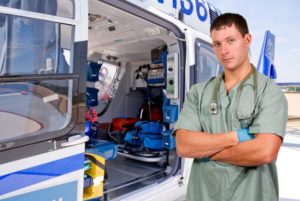A well-crafted resume is the key to starting a successful career, especially in travel nursing. It’s the first real step to securing a travel nursing contract and exploring your chosen top travel nurse locations. But, before you get there, you must figure out the information needed for an exemplary outline of your nursing career thus far.
Writing your first travel nurse resume can feel like a lot of pressure to make sure everything’s perfect. The fear of having no experience and being unqualified leaves many new grads wondering what details to include—but don’t stress out! Most hospitals anticipate your lack of official experience, and it’s okay. You can still create a stellar resume, and we’re here to help you out.
Travel Nurse Resume for New Grads
Carefully Choose Your Layout
Like all important documents, a travel nursing resume must be concise and presentable. Your paperwork won’t get a second glance if it appears sloppy or unprofessional—they say hiring managers only spend about six seconds on each one. How you structure your resume has an impact on its effectiveness. A few etiquette tips include:
- Use one easy-to-read font (i.e., Times New Roman, Arial, or Calibri). If you need variation, use bold or italics.
- Don’t include text smaller than 10 pt font or larger than 12 pt font (excluding headers).
- Proofread to ensure your resume is free of any grammatical errors.
- Save and upload your resume as a PDF to keep your format consistent.
With these guidelines, it’s time for the second step. Choosing which sections to include on your travel nurse resume is equally as important as the layout.
The Big Six
Just like the resume of a more experienced travel nurse, new grad resumes should have six primary sections. It may look a little different from the traditional travel nursing resume, but it should include:
1. Contact information
Include your full name, title, phone number, address, and email. Your school email may be disabled after you graduate, so use a personal, professional-sounding one (not p@rtynur$e3000@gmail.com). If you’re uncomfortable providing your full address, only include the city and state. Some new travel nurses link their LinkedIn profiles.
2. Objective/Skills
As a new grad, there’s not much for you to summarize. You haven’t fully entered the world of travel nursing, so you can write out measurable goals instead of a summary. In a few sentences, articulate what you want from the nursing job you’re applying for and what you bring to the table that makes you the right person for the job. It’s best to mention that you’re a new grad and any skills that would be relevant to the position—second languages, computer skills, time management, critical thinking, etc.
3. Licenses and Certifications
List out your licenses and certifications with the full name of the credential (followed by the parenthetical abbreviation), the full name of the issuing body, and the expiration date. For your nursing license, include the state and license number. You should also indicate if your nursing license is part of the Nursing Licensure Compact.
4. Education
You should include all relevant schooling for your education—excluding your high school diploma. If you attended two colleges to obtain your degree, put down both. You’ll also include your GPA, any honors you received during your education, and your major and minor. Clearly state if you have an ADN or a BSN.
5. Experience
Although you’re not a travel nurse (yet), you still have some nursing experience! It’s not likely many nursing schools wouldn’t have clinical rotations, practicums, or other training opportunities that provide hands-on care. Even if you weren’t paid, that’s still experience you can out in your resume! Include technical details like type of work, start and end dates, weekly number of hours worked, the hospital or facility (plus city and state), and the name of your unit or department. Be sure to highlight any awards as well.
If you made it through nursing school without official healthcare work or volunteer roles, that’s okay too. You can translate many skills from different jobs to showcase how capable you will be in your potential position.
6. Activities
This section is optional, but it’s your chance to demonstrate that a travel nursing career isn’t just a job for you. Think about the projects, volunteer hours, or other activities related to your passion for nursing. Show them why you’d be a great travel nurse!
Remember to use active words to give your travel nursing resume some dimension and show initiative. Being a newbie travel nurse isn’t as scary as you think and before you know it you’ll be receiving your first travel nurse assignment. Once you have a year or two of experience, you’ll be able to add more and more to your resume and embark on as many travel nursing adventures as possible!
For more help check out our job board for available travel nurse jobs in the top travel nurse locations!


